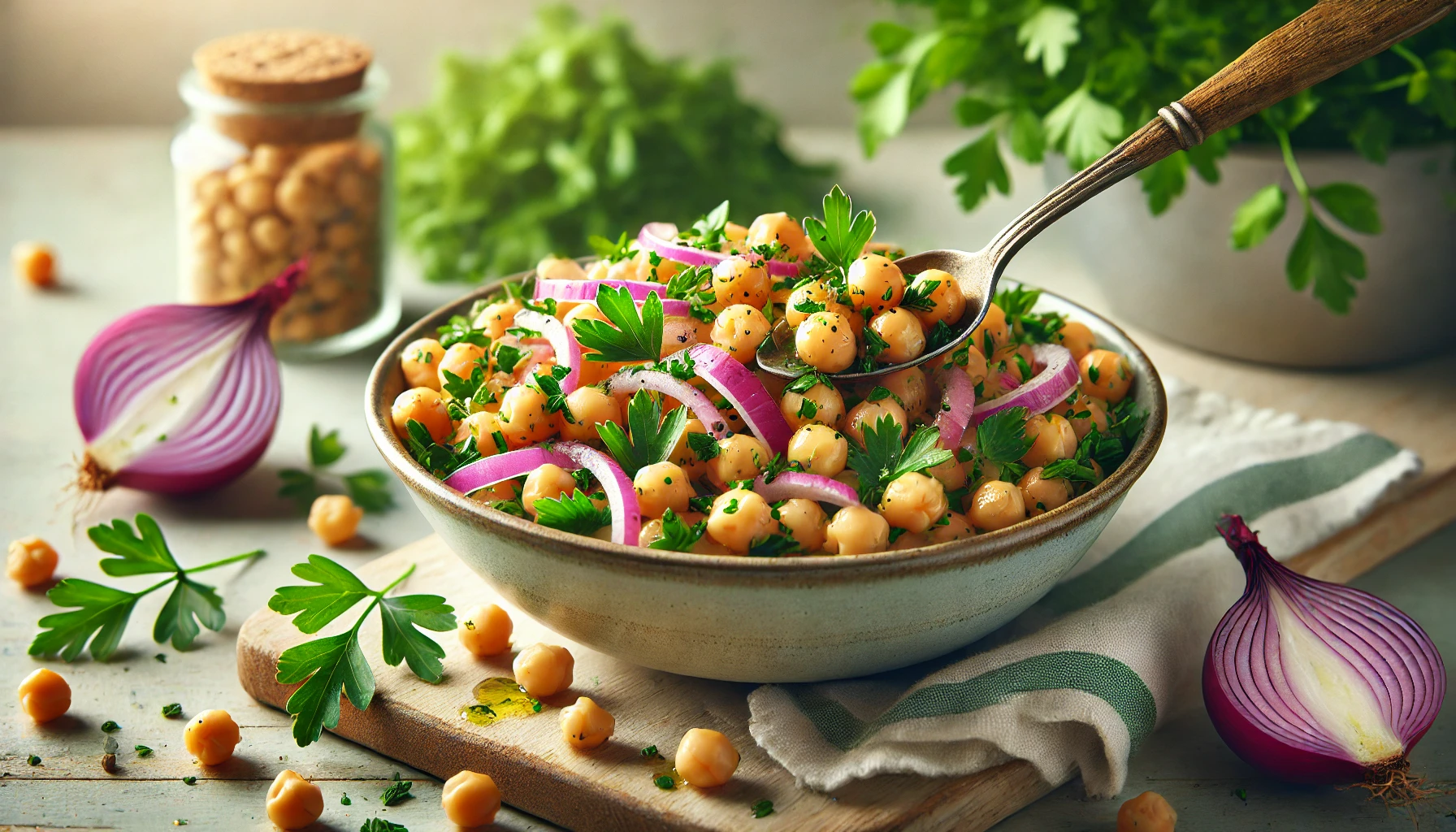This post was written with Consensus AI Academic Search Engine – please read our Disclaimer at the end of this article. Chickpeas, also known as garbanzo beans, are a staple in many diets around the world. They are not only versatile in culinary applications but also packed with numerous health benefits. This article explores the various health advantages of incorporating chickpeas into your diet, supported by scientific research.
Cardiovascular Health
Chickpeas have been shown to positively impact cardiovascular health by reducing serum lipid levels. Studies indicate that a diet supplemented with chickpeas can lead to significant reductions in serum total cholesterol (TC) and low-density lipoprotein cholesterol (LDL-C) levels. For instance, one study found that participants on a chickpea diet experienced a reduction in serum TC by 0.25 mmol/L and LDL-C by 0.20 mmol/L compared to a wheat-based diet1. Another study corroborated these findings, showing a 3.9% and 4.6% reduction in TC and LDL-C, respectively, after a chickpea-supplemented diet3.
Blood Glucose Control
Chickpeas are beneficial for blood glucose control, particularly in individuals with diabetes. Research has demonstrated that consuming chickpeas can lead to lower postprandial plasma glucose levels. In an acute study, plasma glucose levels were significantly lower 30 and 60 minutes after consuming a chickpea-based meal compared to wheat-based foods2. Although long-term studies did not show significant improvements in insulin sensitivity, the immediate benefits of chickpeas on blood glucose levels are noteworthy2.
Satiety and Weight Management
Chickpeas can also aid in weight management by enhancing satiety. Studies have shown that chickpea consumption leads to increased feelings of fullness and reduced appetite. For example, a study found that all forms of chickpea treatments elicited significantly lower postprandial glycaemic responses and enhanced subjective satiety responses compared to a control5. Another study noted that some participants reported greater satiety during a chickpea diet compared to a wheat-based diet1.
Antihyperlipidemic Effects
Chickpeas have demonstrated antihyperlipidemic effects, particularly in postmenopausal women. A study on ovariectomized rats showed that dietary supplementation with germinated chickpea sprouts normalized lipid profiles in serum and liver, comparable to the effects of the antihyperlipidemic agent atorvastatin4. This suggests that chickpeas could be a natural alternative for managing dyslipidemia.
Anti-Inflammatory Properties
Chickpea oil has been found to have anti-inflammatory properties, which can be beneficial for conditions like osteoarthritis. A clinical trial showed that topical application of chickpea oil significantly reduced pain, stiffness, and difficulty in activity in patients with knee osteoarthritis compared to piroxicam gel or paraffin6.
Nutritional Enhancement
Incorporating chickpea flour into traditional foods can improve their nutritional quality. For instance, enriching a popular Lebanese pastry, “Mankoushe,” with chickpea flour resulted in modest reductions in glucose and insulin levels post-consumption7. This suggests that chickpea flour can be a functional ingredient to enhance the nutritional profile of various foods.
Conclusion
Chickpeas offer a multitude of health benefits, from improving cardiovascular health and blood glucose control to enhancing satiety and providing anti-inflammatory effects. Incorporating chickpeas into your diet can be a simple yet effective way to boost overall health and well-being.
Disclaimer
The content presented in this blog is generated by Consensus, an AI-powered academic search engine, and is based on publicly available scientific literature. While every effort is made to provide accurate, up-to-date, and well-researched information, the content is intended for informational and educational purposes only. It does not constitute medical advice, diagnosis, or treatment. Always consult a qualified healthcare professional before making any decisions regarding medical conditions, treatments, or medications. The AI system’s analysis may not cover all perspectives, emerging research, or individual cases, and it is not a substitute for professional expertise. Neither the blog publisher nor the developers of the AI-powered search engine are responsible for any actions taken based on the information provided in this content. Use of this information is at your own risk. Citations to the original scientific studies are included for reference, but these studies should be reviewed in full and interpreted with the guidance of a healthcare or research professional.
If you are experiencing a medical emergency, please seek immediate attention from a healthcare provider.
